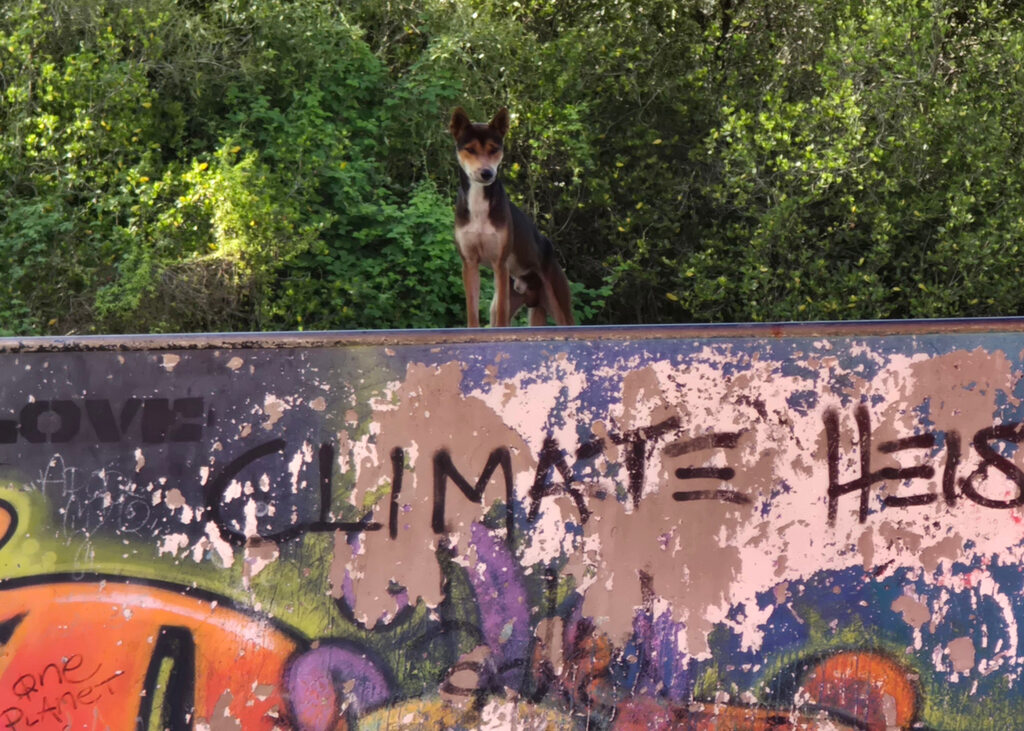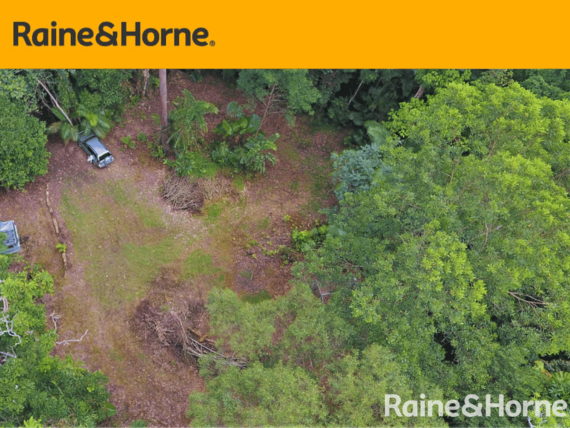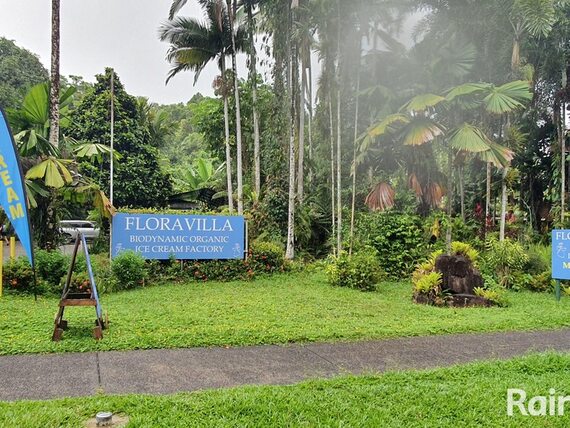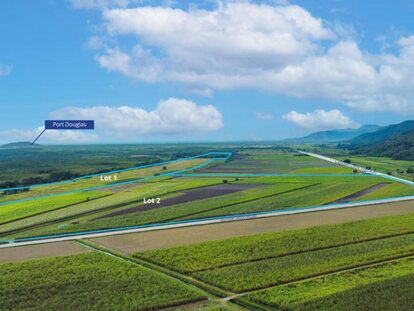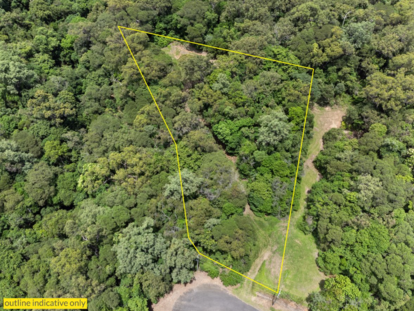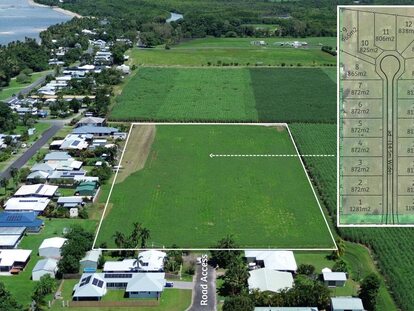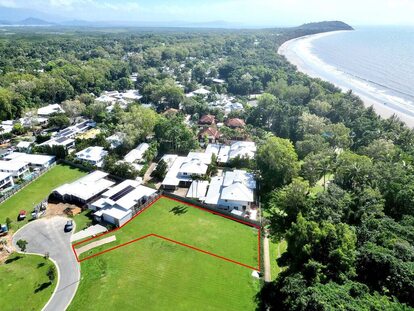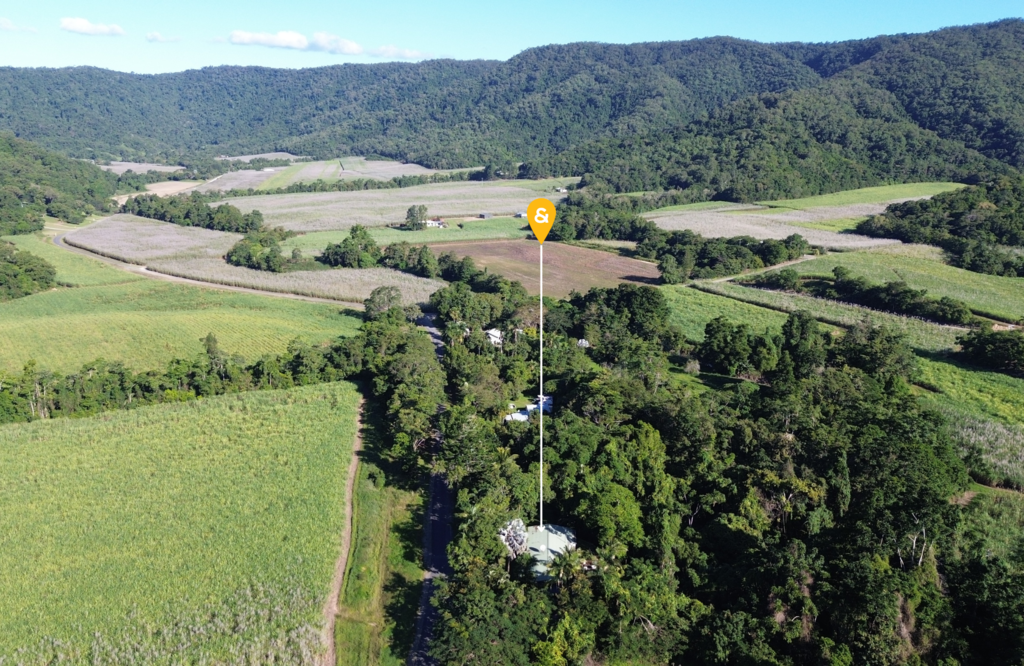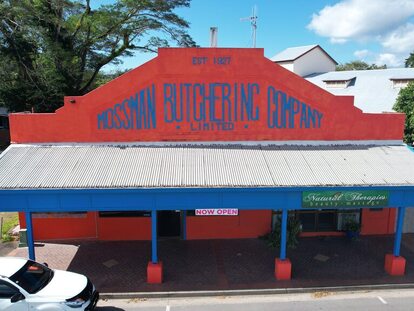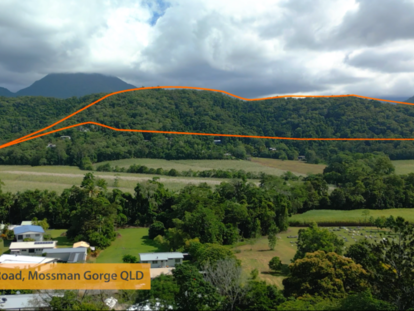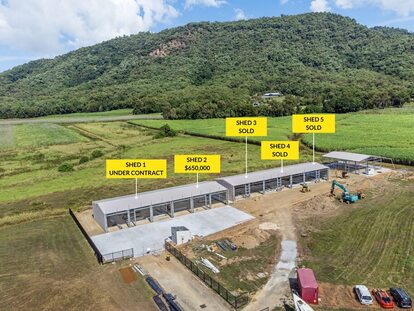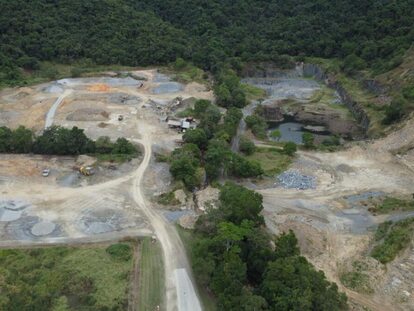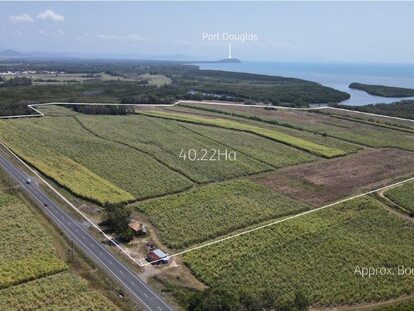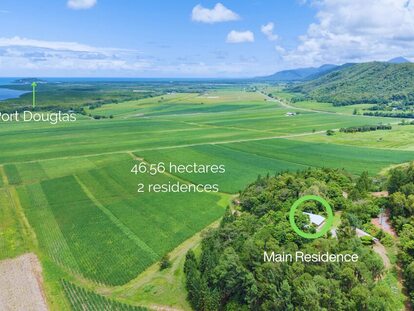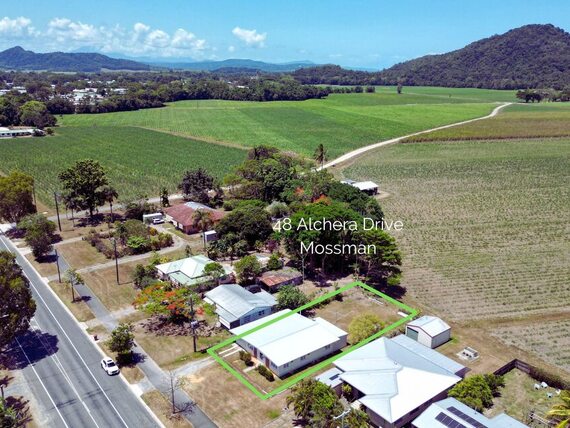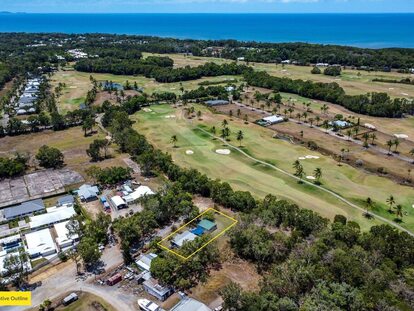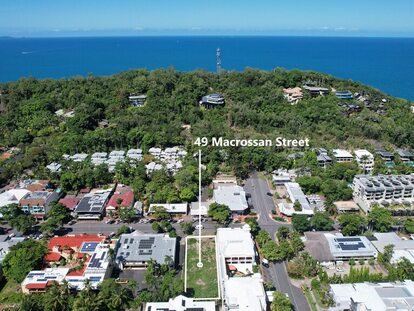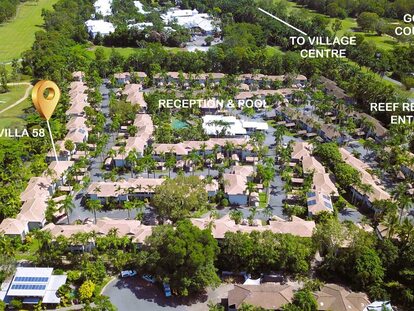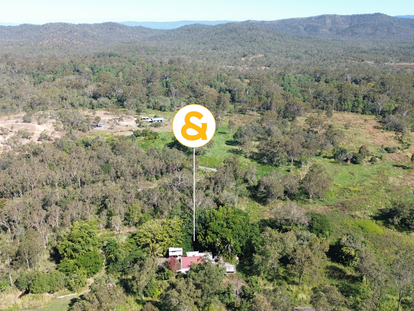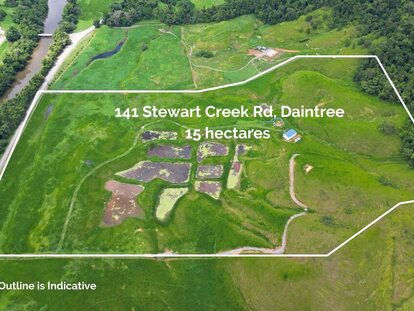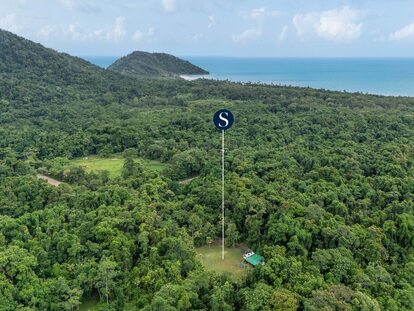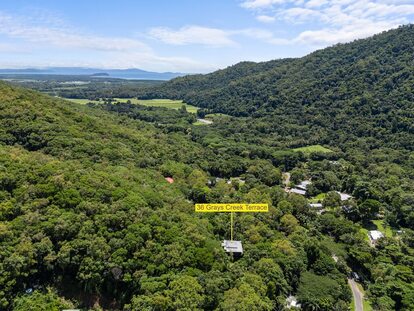|
(
27
)
|
Date
|
Start time
|
End time
|
Event name
|
Event description
|
Location
|
Cost
|
Website link
|
Event contact phone
|
Event contact email
|
Category (Maximum of 4 categories)
|
Terms and conditions
|
Name
|
Email
|
Phone
| |
|---|
| 1. |
Saturday 12 April 2025
2025-04-12T00:00:00+10:00
|
6pm
|
10pm
|
Takeover Series Dinner: Alastair McLeod
|
We're back for our second Takeover Series Dinner of 2025, and this time we're bringing culinary personality and chef Alastair McLeod into the kitchen!
Beloved for his unmatched charisma and fresh, heritage-inspired cooking, Alastair promises a night of exceptional dining, delightful commentary and of course, fabulous company!
|
Harrisons Restaurant
|
$180 per person
|
https://www.harrisonsrestaurant.com.au/events/2025-takeover-series
| | |
Food & Wine Event
| |
Alina
|
[email protected]
|
0740995888
| |
| 2. |
Saturday 12 April 2025
2025-04-12T00:00:00+10:00
|
3pm
|
4pm
|
Agave Australis Masterclass @ Daintree Bar
|
Start the session with a mix-your-own signature Agave Australis Australian Margarita (the Aussie Marg, as they call it!) with guidance from the Mt. Uncle experts. After settling in, you'll an insightful tasting session of Mt. Uncle's core Agave spirit range with accompanying nibbles prepared by the culinary team.
Agave Australis Silver Agave Spirit | Smoked barra, waffle, caviar, creme fraiche
Agave Australis Rested Agave Spirit | Beef tataki, foccacia, garlic cream
Agave Australis Aged Agave Spirit | Caramel tart, coffee, hazelnut
Finish the afternoon with a refreshing housemade Paloma, before enjoying the remainder of the afternoon in the Daintree Bar with your new classmates.
|
Daintree Bar
|
$49 per person
|
https://www.eventbrite.com.au/e/mt-uncle-agave-australis-masterclass-tickets-1300261791019?aff=NewsportWhatsOn
| | |
Food & Wine Event
| |
Alina
|
[email protected]
|
0740995888
| |
| 3. |
Saturday 29 March 2025
2025-03-29T00:00:00+10:00
|
9 am
|
10 am
|
5 years tai chi
|
Next Saturday 29 march we celebrate 5 years of tai chi in four mile park.
We have practised every day since COVID lockdown and it has kept us healthy in body and mind.
Thanks to everyone who has participated.
Thanks to the council workers who mow the park and keep it clean.
|
Four mile park
|
Free
| |
0488349713
|
[email protected]
|
Arts & Culture, Community Event, Free Event, Workshop or Training
| |
Frieda van Aller
|
[email protected]
|
0488349713
| |
| 4. |
Saturday 12 April 2025
2025-04-12T00:00:00+10:00
|
11 am
|
Until food runs out
|
Cow Bay Beach BBQ
|
BBQ on the Beach
Omnivores & herbivores catered for
Cakes & drinks
Fundraiser for Daintree Coast Community Shed
STALL HOLDERS WELCOME - No charge from DCCSi
|
COW BAY BEACH QLD
|
$
| |
0427006607
|
[email protected]
|
Community Event, Family Event, Markets
|
Stall holders to carry own insurance.
|
Cindy McLaughlin
|
[email protected]
|
0427006607
| |
| 5. |
Tuesday 15 April 2025
2025-04-15T00:00:00+10:00
|
10:30 AM
|
11:30 AM
|
Magic Workshop with Chantal Munro
|
Join us at Mossman Library for a spectacular magic show with Chantal Munro. No need to book. Come out and have a good time. All ages welcome.
|
Mossman Library
|
Free
| | | |
Community Event, Free Event
|
Adult supervision required.
|
Douglas Libraries
|
[email protected]
|
4099 9496
| |
| 6. |
Monday 31 March 2025
2025-03-31T00:00:00+10:00
|
10:30am
|
12:30pm
|
Building Digital Skills for Older Australians
|
Join us at Mossman Library for a hands-on tech help workshop where you bring your own device - smartphone, tablet or laptop.
This free workshop is designed to help you build confidence and skills in using technology. Receive personalised assistance to get the most out of your device.
|
Mossman Library
|
Free
| |
40999496
|
[email protected]
|
Community Event, Free Event, Senior Event, Workshop or Training
|
Please call to secure your place
|
Amanda O'Brien
|
[email protected]
|
0740999496
| |
| 7. |
Friday 8 August 2025
2025-08-08T00:00:00+10:00
|
6:30pm
|
9:30pm
|
Monthly Social Dancing
|
Come and dance with us. Free 30 min Dance Class. Learn new dance, while having your delicious meals and enjoying your favorite drink. Come with your friends or love ones. FREE ENTRY. At the Pullman Sea Temple Resorts. See you there.
|
PULLMAN SEA TEMPLE RESORT
|
Free
|
Facebook Keep On Dancing
|
0423453329
|
[email protected]
|
Arts & Culture, Community Event, Food & Wine Event, Free Event
| |
Jeanfer Salas
|
[email protected]
|
0423453329
| |
| 8. |
Friday 11 July 2025
2025-07-11T00:00:00+10:00
|
6:30pm
|
9:30pm
|
Monthly Social Dancing
|
Come and dance with us. Free 30 min Dance Class. Learn new dance, while having your delicious meals and enjoying your favorite drink. Come with your friends or love ones. FREE ENTRY. At the Pullman Sea Temple Resorts. See you there.
|
PULLMAN SEA TEMPLE RESORT
|
Free
|
Facebook Keep On Dancing
|
0423453329
|
[email protected]
|
Arts & Culture, Community Event, Food & Wine Event, Free Event
| |
Jeanfer Salas
|
[email protected]
|
0423453329
| |
| 9. |
Friday 13 June 2025
2025-06-13T00:00:00+10:00
|
6:30pm
|
9:30pm
|
Monthly Social Dancing
|
Come and dance with us. Free 30 min Dance Class. Learn new dance, while having your delicious meals and enjoying your favorite drink. Come with your friends or love ones. FREE ENTRY. At the Pullman Sea Temple Resorts. See you there.
|
PULLMAN SEA TEMPLE RESORT
|
Free
|
Facebook Keep On Dancing
|
0423453329
|
[email protected]
|
Arts & Culture, Community Event, Food & Wine Event, Free Event
| |
Jeanfer Salas
|
[email protected]
|
0423453329
| |
| 10. |
Friday 9 May 2025
2025-05-09T00:00:00+10:00
|
6:30pm
|
9:30pm
|
Monthly Social Dancing
|
Come and dance with us. Free 30 min Dance Class. Learn new dance, while having your delicious meals and enjoying your favorite drink. Come with your friends or love ones. FREE ENTRY. At the Pullman Sea Temple Resorts. See you there.
|
PULLMAN SEA TEMPLE RESORT
|
Free
|
Facebook Keep On Dancing
|
0423453329
|
[email protected]
|
Arts & Culture, Community Event, Food & Wine Event, Free Event
| |
Jeanfer Salas
|
[email protected]
|
0423453329
| |
| 11. |
Friday 11 April 2025
2025-04-11T00:00:00+10:00
|
6:30pm
|
9:30pm
|
Monthly Social Dancing
|
Come and dance with us. Free 30 min Dance Class. Learn new dance, while having your delicious meals and enjoying your favorite drink. Come with your friends or love ones. FREE ENTRY. At the Pullman Sea Temple Resorts. See you there.
|
PULLMAN SEA TEMPLE RESORT
|
Free
|
Facebook Keep On Dancing
|
0423453329
|
[email protected]
|
Arts & Culture, Community Event, Food & Wine Event, Free Event
| |
Jeanfer Salas
|
[email protected]
|
0423453329
| |
| 12. |
Friday 23 May 2025
2025-05-23T00:00:00+10:00
|
4:30 pm
| |
Macrossan Street Parade
|
Macrossan Street comes alive with dazzling entertainment for the young and the young at heart.
A true community event in the finest of Tropical North Queenslander traditions, the Macrossan Street Parade has long been the opening highlight of Port Douglas Carnivale and regularly draws eager crowds of thousands.
|
Macrossan Street
| |
https://www.carnivale.com.au/
|
(+61) (0) 7 4099 9474
|
[email protected]
|
Arts & Culture, Community Event, Family Event, Live Entertainment
| |
Jessabel Dael
|
[email protected]
|
09979210220
| |
| 13. |
Friday 23 May 2025
2025-05-23T00:00:00+10:00
|
12:00 pm
|
3:00 pm
|
The Longest Lunch
|
Hosted by four of the best local restaurants that will present a sumptuous four-course menu using the freshest and most delicious local produce. Added to this we will also have a great local beverage offering from Hemingway’s Brewery and Devils Thumb Distillery.
|
Crystalbrook Superyacht Marina
|
TBA
|
https://www.carnivale.com.au/?_gl=1%2A1mzpq1z%2A_gcl_au%2ANjM0OTM3NTQuMTc0MDc0NjYyNA..
|
(+61) (0) 7 4099 9474
|
[email protected]
|
Community Event, Food & Wine Event
| |
Jessabel Dael
|
[email protected]
|
09979210220
| |
| 14. |
Friday 28 March 2025
2025-03-28T00:00:00+10:00
|
07:30 pm
|
10:30pm
|
Rockin' Rick Karaoke
|
Enjoy a fun evening of Karaoke at Club Mossman from 7:30pm with Rockin' Rick. Get some friends together and enjoy a sumptuous meal in the bistro with a great cocktail or ice-cold beer. Members Draw from 7pm, be there to win.
|
Club Mossman
|
Free
|
www.clubmossman.com.au
|
0740981434
|
[email protected]
|
Live Entertainment
| |
Melissa Di Pietro
|
[email protected]
|
0740981434
| |
| 15. |
Saturday 31 May 2025
2025-05-31T00:00:00+10:00
|
6:00pm
|
10:00pm
|
So P!NK - Pink Tribute Spectacular
|
SO P!NK” a Tribute to PINK
W/ Special Guest Pheobe Jacobs
Mel Van Dyk is one of Australia’s most accomplished entertainers who delivers to the Stage “SO P!NK” a Tribute to PINK. The show delivers all the P!nk hits you’ve come to know and love. Exceptional costumes and stunts (did someone say ‘cartwheels and rollerskates’?) are themed with this show. “So P!nk” - The P!nk Tribute Spectacular, is a tribute show unlike any other. So, let’s ’Get the party started’ and ‘Raise your glass’ to “So P!nk!” If you only see two shows this year - you’ll want to see this one twice!
Need a lift? Book our courtesy bus! 4055 3534
|
Ellis Beach Bar & Grill
| |
https://www.entertainmentcairns.com/ellis-beach-bar-grill
| |
[email protected]
|
Live Entertainment, Major Event
| |
Jesse McClelland
|
[email protected]
|
40553534
| |
| 16. |
Monday 30 June 2025
2025-06-30T00:00:00+10:00
|
6:00pm
|
10:00pm
|
So P!NK - Pink Tribute Spectacular
|
SO P!NK” a Tribute to PINK
W/ Special Guest Pheobe Jacobs
Mel Van Dyk is one of Australia’s most accomplished entertainers who delivers to the Stage “SO P!NK” a Tribute to PINK. The show delivers all the P!nk hits you’ve come to know and love. Exceptional costumes and stunts (did someone say ‘cartwheels and rollerskates’?) are themed with this show. “So P!nk” - The P!nk Tribute Spectacular, is a tribute show unlike any other. So, let’s ’Get the party started’ and ‘Raise your glass’ to “So P!nk!” If you only see two shows this year - you’ll want to see this one twice!
Need a lift? Book our courtesy bus! 4055 3534
|
Ellis Beach Bar & Grill
| |
https://www.entertainmentcairns.com/ellis-beach-bar-grill
| |
[email protected]
|
Live Entertainment, Major Event
| |
Jesse McClelland
|
[email protected]
|
40553534
| |
| 17. |
Sunday 30 March 2025
2025-03-30T00:00:00+10:00
|
1:00pm
|
4:00pm
|
Pauly P @ Ellis Beach Bar & Grill
|
It's Sunday Live Music at Ellis Beach Bar & Grill 1pm - 4pm with Pauly P!
Experience the unique sound of Pauly P Band, a well-established collective of musicians in Cairns, as they blend various genres in a non-traditional style. Live looping and Ableton live come together with instruments and lush vocals.
What else is on?
• $2 Oysters available 1pm to 4pm unless sold out earlier
Don't feel like driving? Our courtesy bus will be operating 12:00pm - 6:00pm with pickups from Palm Cove, Clifton Beach, Kewarra Beach* & Trinity Beach*; Just call when you're ready to go!
*5 people or more
Check out our website for upcoming events, menus, specials and more!
https://ellisbeachbarandgrill.com.au/live-music-ellis-beach-cairns/
|
Ellis Beach Bar & Grill
| |
https://www.entertainmentcairns.com/ellis-beach-bar-grill
| |
[email protected]
|
Free Event, Live Entertainment
| |
Jesse McClelland
|
[email protected]
|
40553534
| |
| 18. |
Friday 28 March 2025
2025-03-28T00:00:00+10:00
|
10am
|
9pm
|
Wet Season Indoor Golf League
|
Come into the store on Friday nights or at anytime during the week and participate in the weekly Indoor Stableford Competition. Every Friday a new golf course is chosen to be the venue. World-famous courses like Augusta, Pebble Beach, Wolf Creek, TPC Sawgrass and Riviera, or Australian courses like New South Wales, Hamilton Island, Brookwater or The Grange, just to name a few. It's 9 holes of golf with Stableford scoring and the best score for the week wins a CA$H prize. Try your luck every week.
|
Daddyshack PD golf shop, bottom of Grant St, Port Douglas. Opposite the Quicksilver building.
|
$25
|
ttps://www.facebook.com/groups/1231198597727923
| |
[email protected]
| | |
Michael Walsh
|
[email protected]
|
0414741163
| |
| 19. |
Friday 4 April 2025
2025-04-04T00:00:00+10:00
|
7:30pm
|
10:30pm
|
Katie Richards
|
Katie Richards is an indie folk-rock artist with influences from reggae and pop, bringing a warm, soulful energy to her guitar and vocal performances. Performing at Club Mossman on Friday 4th March from 7:30pm. Bistro is open from 5:30pm, book online clubmossman.com.au.
|
Club Mossman
|
Free
|
www.clubmossman.com.au
|
0740981434
|
[email protected]
|
Live Entertainment
| |
Melissa Di Pietro
|
[email protected]
|
0740981434
| |
| 20. |
Saturday 12 April 2025
2025-04-12T00:00:00+10:00
|
7:00pm
|
10:00pm
|
Brandon Walker
|
Local and live entertainment at Club Mossman. Local artist Brandon Walker will be strumming his guitar from 7pm, Bistro opens at 5:30pm and bookings can be made via clubmossman.com.au.
|
Club Mossman
|
Free
|
www.clubmossman.com.au
|
0740981434
|
[email protected]
|
Live Entertainment
| |
Melissa Di Pietro
|
[email protected]
|
0740981434
| |
| 21. |
Sunday 6 April 2025
2025-04-06T00:00:00+10:00
|
4:00pm
|
7:00pm
|
Becks
|
Live and local at Club Mossman, solo artist Becks will be playing from 4pm. Enjoy a chilled Sunday Session and stay for dinner, Bistro opens at 5:30pm. Book online clubmossman.com.au.
|
Club Mossman
|
Free
|
www.clubmossman.com.au
|
0740981434
|
[email protected]
|
Live Entertainment
| |
Melissa Di Pietro
|
[email protected]
|
0740981434
| |
| 22. |
Saturday 29 March 2025
2025-03-29T00:00:00+10:00
|
4pm
|
9pm
|
Saints Boot Scootin' Bush Dance
|
Free family friendly event for the whole community! Come join us for our first bush dance featuring Whiskey Boat from Mareeba! Rides, face painting, food, bar, Cent sale and more!!!
|
24 Grogan Street Mossman
|
Free
| | | |
Community Event, Family Event, Free Event, Major Event
| |
Hannah Santarossa
|
[email protected]
|
0430907882
| |
| 23. |
Thursday 27 March 2025
2025-03-27T00:00:00+10:00
|
7:00pm
|
8:30pm
|
Trivia with Supa Sal and Wevs
|
Trivia with Sup Sal and Wevs at Club Mossman. Join the fun and the chance to win great prizes and cash. Try our new Bistro menu, open from 5:30pm.
|
Club Mossman
|
$5 per person
|
www.clubmossman.com.au
|
0740981434
|
[email protected]
|
Trivia & Games
| |
Melissa Di Pietro
|
[email protected]
|
0740981434
| |
| 24. |
Saturday 9 August 2025
2025-08-09T00:00:00+10:00
|
6:00pm
|
11:00pm
|
Ash Grunwald
|
After the last epic show at Ellis Beach Bar, Ash Grunwald returns for another incredible show for 2025. Renowned for his electrifying live shows, Ash Grunwald has inspired a generation to hit the road in an old van to ‘surf by day jam by night’. The festival favourite brings a high energy, vibrant live show with stacks of guitars and foot stomping blues. Part troubadour, part storyteller - Ash has been selling out shows all over the country, don’t miss this one at Ellis Beach Bar & Grill.
Special Guest Katie Richards
|
Ellis Beach Bar & Grill
| |
https://www.entertainmentcairns.com/ash-grunwald-2
|
40553534
|
[email protected]
|
Live Entertainment
| |
Jesse McClelland
|
[email protected]
|
0458556237
| |
| 25. |
Saturday 21 June 2025
2025-06-21T00:00:00+10:00
|
4:30pm
|
10:00pm
|
Ellis Rocks! 19-Twenty / Boing Boing / Roshani
|
19-Twenty:
19-Twenty are a high-energy blues and roots band who storm the stage like a freight train. With a sound that blends foot-stomping rhythms, raw energy, and an undeniable sense of fun, 19-Twenty has quickly earned a reputation as one of the country's most exhilarating live acts.
Boing Boing:
Boing Boing, are a four piece 4 Litre Straight 6 Rock n Roll band from way up in the far north that write songs inspired by the characters and lifestyle of Northern Australia and the landscape that shapes them. Boingas blend the simplicity and timelessness of 50s rock-n-roll with BIG riffs, outback energy and a unique FNQ vernacular that has seen them deliver their 4Litre Straight 6 Rock n Roll to maddened punters all across the country.
Roshani:
She builds her sounds using a range of foot pedals, loop stations, guitars, foot percussion, synths, harmonica and lush harmonies to create a truly unique musical experience.
“Breakthrough Artist was Sri-Lankan born star in the making ROSHANI.”
-Byron Bay Bluesfest.
|
Ellis Beach Bar & Grill
| |
https://www.entertainmentcairns.com/ellis-beach-bar-grill
|
40553534
|
[email protected]
|
Live Entertainment
| |
Jesse McClelland
|
[email protected]
|
0458556237
| |
| 26. |
Saturday 29 March 2025
2025-03-29T00:00:00+10:00
|
6:00pm
|
10:00pm
|
Gold Chisel vs. The Power & The Passion
|
Gold Chisel vs The Passion - Oils Tribute 8pm to 10pm
W Special Guest Cam Kettle 6.15pm to 7.45pm
Gold Chisel vs The Power & The Passion Oils Tribute Cold Chisel & Midnight Oil were the kings of sweaty, hard rocking Oz pub bands in the 70's and 80's and now, Melbourne's premier tribute shows are performing together to bring back the excitement and energy of those halcyon days. Headlining the show is the incomparable Gold Chisel who will cover all Chisel classics such as Khe Sanh, When the War is Over, Cheap Wine, Flame Trees, You Got Nothing I Want and Choir Girl (plus many more) in their set. Supporting the Chisel crew will be, The Australian Midnight Oil Tribute Show. The Australian Midnight Oil Tribute will belt out a set of classics which includes Power and the Passion, US Forces, Dreamworld, King of the Mountain, Forgotten Years, Beds are Burning, Blue Sky Mine and more. A massive night of the best of Australian rock is a guarantee when Gold Chisel & The Australian Midnight Oil Tribute Show are in the house.
|
Ellis Beach Bar & Grill
| |
https://www.entertainmentcairns.com/ellis-beach-bar-grill
|
40553534
|
[email protected]
|
Live Entertainment
| |
Jesse McClelland
|
[email protected]
|
0458556237
| |
| 27. |
Sunday 17 August 2025
2025-08-17T00:00:00+10:00
|
6:00am
|
4:00pm
|
K2PD
|
The K2PD Ultra & Relay Trail Race is an epic trail-running adventure from Kuranda to Port Douglas, showcasing the stunning landscapes of Tropical North Queensland. Runners traverse diverse terrains, including rainforests, woodlands, and coastal tracks, testing endurance and resilience. Join us for a challenging, unforgettable journey through pine forest, native bush and World Heritage Wet Tropics rainforests!
|
Kuranda to Port Douglas
|
$100 for SOLO or $50 per team member
|
https://www.dynamicrunning.com.au/k2pd/
|
0417798444
|
[email protected]
|
Sport Event
| |
Lorraine Lawson
|
[email protected]
|
0417798444
| |
